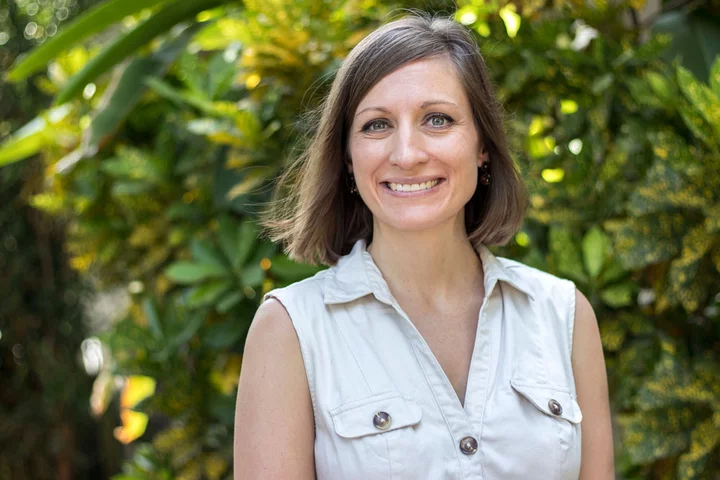Last month, the D-tree team traveled to Lusaka to participate in ICT4D 2018, one of the largest global gatherings of technology and development professionals who bring multi-sectoral experience and learnings to more than 800 participants. I have participated in the ICT4D conferences for the past three years, in Nairobi, Hyderabad and now Lusaka and find this to be one of the most inspiring and useful conferences of the year, both because of the quality of participants as well as the variety of sessions presented. This year, D-tree presented on our work developing digitally-supported emergency transport systems and participated in two panels looking at end-user engagement and supervision along with other great organizations leveraging technology, Dimagi, Medic Mobile and Pathfinder International.
During this year’s conference, several themes stuck out to me which resonate very closely with D-tree as an organization and describe what we do and where we see ourselves going as a mission-driven organization supporting the expansion of digital technology in healthcare:
-
The intersection of digital and health
-
Systems, not (just) apps
-
Emerging technology to accelerate impact
The intersection of digital and health
During the opening plenary, Lauren Woodman, CEO of Nethope, spoke about the “Digital nonprofit.” Based on research conducted by her organization, she outlined what she sees the characteristics of an organization which is leveraging technology to improve efficiency, quality and impact:
“Combining on-the-ground experience of global non-profits
with the expertise of the technology sector
to create, adopt and scale innovative solutions”
As Ms. Woodman spoke, it felt to me like she was writing D-tree’s value proposition. As an organization, we work at the intersection of health and technology, using our on-the-ground experience of the context and health systems, coupled with our deep understanding of technology to co-design solutions with our partners which leverage innovations in technology as well as develop strong processes and systems to achieve health impact. We see our role as a bridge – often a translator – between non-profits and tech companies. Understanding both cultures and contexts allows us to bridge the gap that so often exists in ICT4D programs.
Systems, not (just) apps
At multiple sessions, speakers talked about the process of implementing digital solutions. A theme that kept emerging – and one that we feel strongly about at D-tree – is the need for strong systems to be put in place and supported in order for technology solutions to achieve sustained impact. It is not uncommon for promising pilot projects fizzle out after several months of implementation. There are many reasons for this, but one common theme is the lack of strong systems developed, nurtured and institutionalized from the outset. A sentiment which was echoed by multiple groups was that technology alone is not enough to bring about change. In fact, in our experience, we find that the technology is often the least challenging aspect of implementing a successful digital health program. The larger challenge is the development of processes and change management which is required to support real, sustained adoption of digital tools.
We have seen projects which invest significant time and resources in developing the perfect mobile app for a health worker. Even when accompanied by supervisory tools and dashboards, these systems often do not become systematically adopted by health workers if factors such as motivation, connectedness and routine processes are not considered. On the other hand, programs which take a systems approach and look at the health system as a whole — including considering motivational factors for health workers, how supervisors engage (or could engage) with their teams, and linkages within the broader health system – are far more likely to succeed. When technology is one aspect of a broader systems change, we see real and lasting improvements in service delivery and measurable health impact.
Emerging technologies to accelerate impact
During the closing session, panelists spoke about emerging technologies and their application in international development. Machine learning was discussed as having the potential to improve programs in a variety of ways, ranging from supporting women’s cooperatives in Afghanistan to enabling smallholder farmers.
We see a lot of potential for emerging technology in digital health which, if developed appropriately within the context that programs are based, could accelerate gains in health programs. For example, in our work in Zanzibar where we support digitally-enabled community health workers at national scale, we are exploring partnerships with academic institutions who use big data and machine learning to solve complex development challenges. Using machine learning on data from the community health system, we will be able to use predictive analyses to better predict clients who will need more follow-up. For example, if we are able to predict which women will deliver at home, or which children will be more at risk of not being fully vaccinated or having poor health outcomes, we can tailor the work flow for community health workers to visit certain families more often which allows us to optimize limited resources and maximize the benefit of digital programs.
At D-tree, we integrate each of these themes into our work on a daily basis. As the field of ICT4D expands rapidly, we are working to stay abreast of these changes and advances in order to continue to be a trusted partner, working in partnership with governments and NGOs, to not only design and develop innovative solutions, but also processes and systems which are necessary to effectively implement and sustain the systems which lead to real, measurable health impact.
We look forward to participating in ICT4D 2019!

